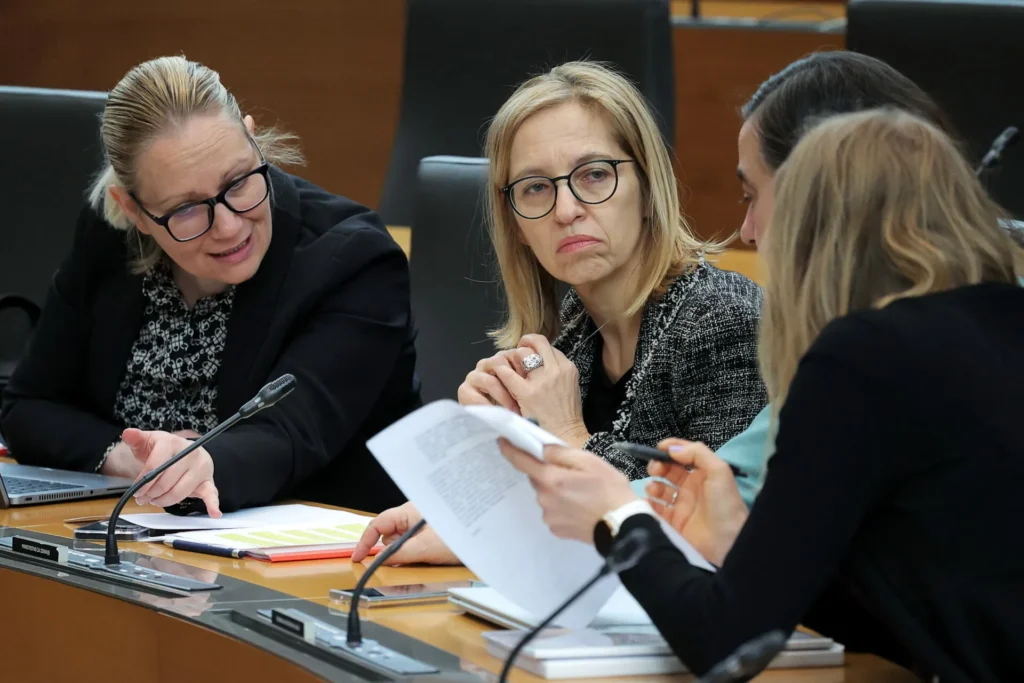The Golob government clearly sees the referendum as crucial to its political survival, pouring enormous energy and political capital into the campaign. This has ranged from censoring the X accounts of professional medical associations to mobilizing the far-left “street” that helped the current rulers win the parliamentary elections. Now, it seems, they have also started intimidating doctors themselves.
Dr. Igor Mužević shared on X a post by physician Dušan Baraga, who revealed that doctors had received a letter from the ministry stating they are not allowed to express their opinion in their clinics if they oppose the law. The letter was reportedly backed by threats of inspections and sanctions.
Why is the government so afraid of doctors’ opinions?
Baraga notes that it may indeed not be legally correct to use public institution premises to express personal views, but he wonders why politics fears doctors’ opinions to the point of resorting to censorship. He says he has never experienced anything like it. Challenging the stereotype that right-wing governments are “more backward,” he remarked that this government is neither backward nor progressive — it is simply confused. He highlighted the key problems with the law: “It is vague, it introduces coercion on doctors, and it seeks to regulate a profound ethical dilemma at a time when society is morally collapsing and the healthcare system is in very poor condition.”
Doctors’ defiance of the authorities
Since they are forbidden from posting or speaking about it in their clinics, doctors can do so on their private profiles, Baraga says, urging his colleagues to thoroughly familiarize themselves with the law before deciding how to vote. He himself joins the doctors of the Ljutomer Health Center, who have been brave enough to speak out publicly. There, healthcare workers have effectively defied the authorities’ dictate that they must not express a professional opinion on an important aspect of their profession.
This is not the first case of medical defiance toward the social scientists in the government who would like to silence them. In the Kamnik Health Center and the Kamnik Nursing Home, family doctors have unanimously decided that if the controversial law is passed, they will not participate in its implementation. Dr. Ravnikar wrote: “At the Dr. Julij Polc Health Center in Kamnik, all family doctors have unanimously announced that if the controversial law is adopted, we will not participate in its implementation.”He added: “There is absolutely no need for the participation of doctors and other healthcare workers in the procedures under the Act on Assisted Dying to be mandatory. If anything, wise and reasonable politicians would amend the radical version of the law — drafted by a narrow group of committed individuals — so that doctors’ involvement would be voluntary, as it is in all other European countries with such legislation.”The same message has been communicated to patients at both the Kamnik Health Center and Nursing Home.
Does the ministry have the right to impose censorship?
This raises the question of whether the Ministry of Health, led by Valentina Prevolnik Rupel, has the right to intimidate doctors in this way. After all, the issue falls entirely within their professional domain. In the past, it was precisely left-wing politics that was the loudest in defending the autonomy of doctors — even dissenting ones — who opposed measures backed by mainstream science, claiming it was their professional autonomy, even when expressed at the workplace. Now, however, we have a situation where practically the entire medical profession is warning that this is a very bad law, completely lacking safeguards. Does the same political side have the de facto, de jure — and ultimately moral and ethical — right to dictate to doctors how they may speak to their patients?From a legal standpoint, Article 39 of the Slovenian Constitution guarantees freedom of expression, though this right is not absolute — certain restrictions apply in employment relationships if they are lawful, necessary, and proportionate. An employer may, for example, require employees not to speak on behalf of the institution without permission or to follow rules on professional public communication — which is what the ministry has done here. However, established legal practice in Slovenia confirms that blanket bans on employees expressing their opinions often constitute an excessive infringement on freedom of expression. The leaflets currently appearing in health centers are certainly a form of employees publicly expressing their views.
The moral dimension is even more sensitive. The medical profession is inherently ethical, deeply tied to questions of life, death, and patient care. Doctors stand much closer to the line between the world of the living and the world of the dead than ordinary people. When the government or an employer tells doctors they must not speak clearly on such a weighty issue, it can infringe on their professional autonomy.Moreover, on such a momentous societal issue as the introduction of assisted dying, an open, pluralistic, and expert debate is expected — a debate the left clearly does not want. Doctors have a special role in this discussion, because their experience and expertise enable the public to understand the risks of such legislation, risks that the law’s proponents themselves do not see.Censoring doctors thus represents a peculiar erosion of democratic processes in society.
I. K.


